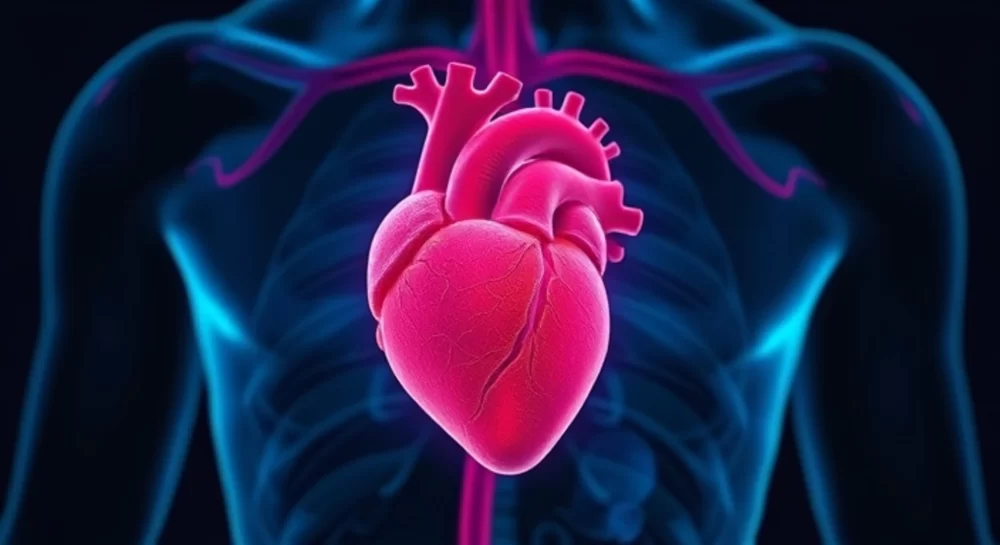Understanding the Signs of Congestive Heart Failure
Congestive heart failure (CHF) is a serious condition that affects millions of people worldwide, particularly in the United States. It occurs when the heart is unable to pump blood effectively to meet the body’s needs. While this condition may develop gradually over time, recognizing the signs and symptoms early on can make a significant difference in how it is managed. This article will explore the signs of congestive heart failure, what to look out for, and how to manage the condition to improve quality of life.

What is Congestive Heart Failure?
Congestive heart failure, often referred to simply as heart failure, is a chronic condition in which the heart becomes weakened and can no longer pump blood efficiently. This leads to a buildup of fluids in the body, particularly in the lungs and other tissues. It is not a disease itself but a syndrome caused by various underlying conditions such as coronary artery disease, high blood pressure, or previous heart attacks. The heart’s inability to meet the body’s oxygen and nutrient demands can lead to a range of symptoms, some of which can be life-threatening if left untreated.
Capital Health Medical Center – Hopewell
capital health medical center hopewell
1 Capital Way, Pennington, NJ 08534, USA

Common Signs of Congestive Heart Failure
Recognizing the signs of congestive heart failure is crucial for early diagnosis and treatment. Below are some of the most common symptoms that individuals with CHF may experience:
- Shortness of Breath – One of the earliest and most common signs of CHF is difficulty breathing, especially during physical activity or while lying down. This occurs when fluid accumulates in the lungs, making it harder to breathe.
- Fatigue and Weakness – People with heart failure often feel unusually tired and weak, even after a full night’s rest. This can happen because the heart is not pumping enough blood to supply muscles and tissues with sufficient oxygen.
- Swelling in the Legs, Ankles, and Feet – Congestive heart failure can cause fluid retention, which leads to swelling in the lower extremities. This is often more noticeable after standing or sitting for long periods.
- Rapid or Irregular Heartbeat – A heart that is struggling to pump blood may beat faster or irregularly. This can sometimes be accompanied by a sensation of palpitations or a fluttering feeling in the chest.
- Persistent Cough or Wheezing – A persistent cough or wheezing, especially at night, can be a sign of fluid buildup in the lungs. This can worsen while lying down.
- Increased Need to Urinate at Night – People with CHF may experience frequent urination, particularly at night. This is due to the body’s attempt to eliminate excess fluid.
What Causes Congestive Heart Failure?
There are several factors that can contribute to the development of congestive heart failure. These factors may include:
- Coronary Artery Disease (CAD) – Blocked or narrowed arteries can reduce blood flow to the heart, leading to heart failure.
- High Blood Pressure – Chronic high blood pressure can cause the heart to work harder than normal, leading to weakening over time.
- Heart Attack – A heart attack can damage the heart muscle, making it less efficient at pumping blood.
- Cardiomyopathy – This refers to diseases of the heart muscle that can weaken the heart’s ability to pump blood.
- Valvular Heart Disease – Damage to the heart valves can affect blood flow, ultimately leading to heart failure.
When to Seek Medical Attention
If you or a loved one are experiencing the symptoms listed above, it is important to seek medical attention as soon as possible. Early diagnosis and treatment can help manage the condition and prevent complications. A healthcare provider may perform diagnostic tests such as an echocardiogram, stress test, or blood tests to determine the cause and severity of the heart failure.
Managing and Treating Congestive Heart Failure
Although there is no cure for congestive heart failure, effective management can significantly improve the quality of life and extend life expectancy. Treatment options may include:
- Medications – Medications like ACE inhibitors, beta-blockers, diuretics, and aldosterone antagonists can help reduce symptoms, lower blood pressure, and prevent further heart damage.
- Lifestyle Changes – Lifestyle modifications such as reducing salt intake, maintaining a healthy weight, quitting smoking, and staying active can all improve heart health.
- Heart Surgery – In severe cases, surgical interventions like valve repair or replacement, coronary artery bypass grafting (CABG), or heart transplant may be necessary.
- Monitoring and Follow-up Care – Regular check-ups and monitoring are essential to manage heart failure effectively. Healthcare providers will track heart function and adjust treatments as necessary.
Real-life Story: Overcoming Congestive Heart Failure
Meet John, a 62-year-old man who was diagnosed with congestive heart failure after years of struggling with high blood pressure and diabetes. John had been feeling increasingly fatigued and short of breath, often needing to sit down after walking short distances. He was also experiencing swelling in his legs, which he thought was just due to aging. However, when he experienced a sudden worsening of symptoms, he sought medical advice. After a series of tests, John was diagnosed with heart failure.
With proper treatment, including medication and lifestyle changes, John was able to regain his strength and improve his quality of life. By reducing his salt intake, exercising regularly, and adhering to his medication regimen, John successfully managed his condition. His story serves as a reminder that with the right support and care, individuals with congestive heart failure can continue to lead active, fulfilling lives.
Conclusion: Take Charge of Your Heart Health
Recognizing the signs of congestive heart failure early on is crucial for effective management. By being proactive about your heart health, you can take steps to prevent complications and improve your overall well-being. If you or someone you know is experiencing symptoms of heart failure, don’t hesitate to consult with a healthcare provider. With the right treatment and lifestyle adjustments, it is possible to live a full and healthy life, even with congestive heart failure.






















Deborah Heart and Lung Center
deborah heart and lung center
200 Trenton Rd, Browns Mills, NJ 08015, USA